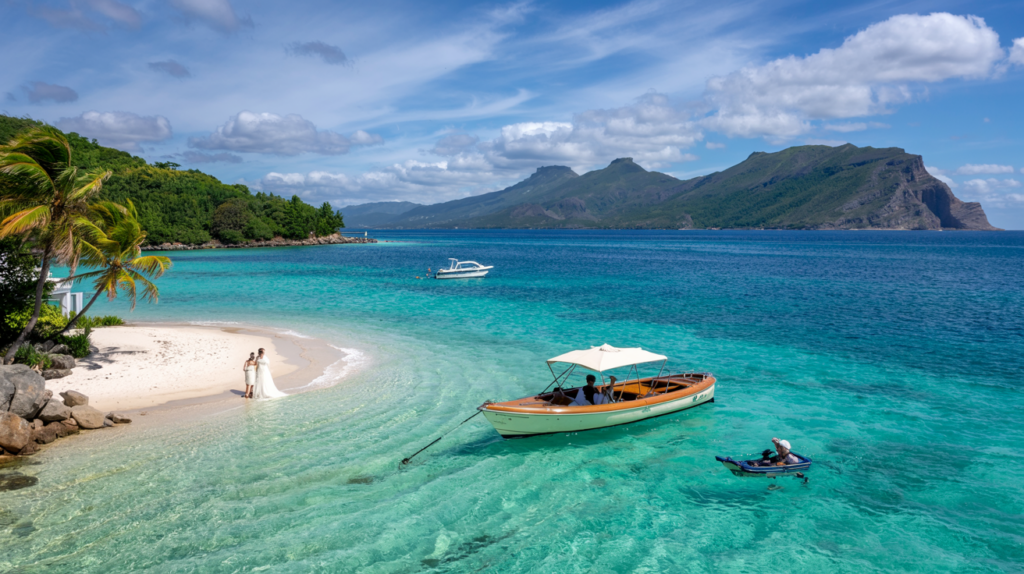
Key points
• A destination wedding is a celebration held away from where the couple lives. It’s when they pick a spot you love—maybe a beach, mountain, or historic city.
• The planning process for destination weddings differs from local ones. accommodations.
• The cost of destination weddings can vary widely. While some people think they’re always expensive they can save money since guest lists tend to be smaller.
Contents
What Are Destination Weddings?
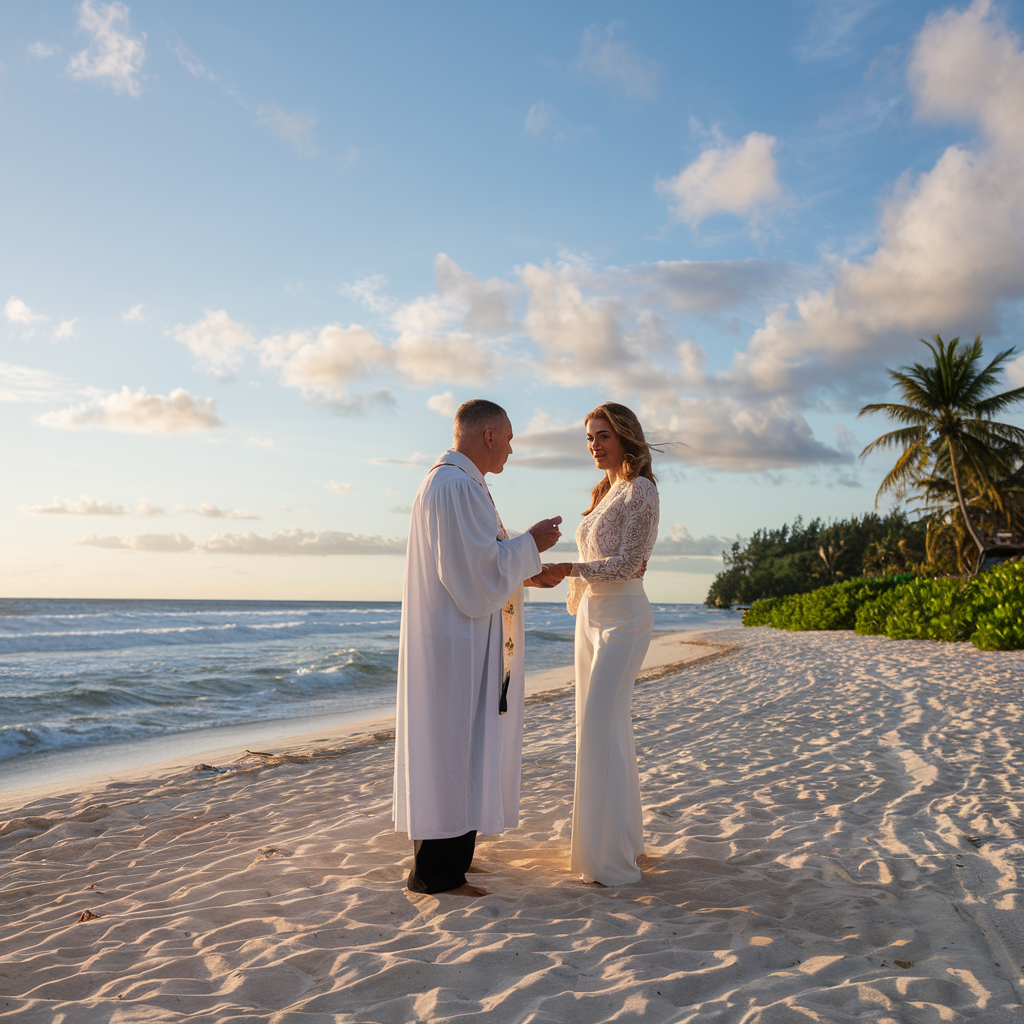
Destination weddings seemed to be just for the rich and famous – but this is wrong.
A destination wedding merges a big day with an easy-going vacation vibe. It’s a means of building memories that will last longer than a day. And are celebrated away from home.
Definition and Overview
What exactly is a destination wedding? It’s when your wedding takes place away from where you live. You could hold your ceremony at a beach in Mexico, an Italian villa, or even a mountain lodge a few states over.
Most guests need to travel and stay overnight for the destination wedding. They book their own hotel or you can opt for a group booking.
These weddings tend to be smaller than home-based ones. It also takes more time – for example: a full weekend or even a week instead of merely a day.
Historical Context and Evolution
Destination weddings aren’t new but they’ve changed a lot. In the past only the super-rich had the budget to take their wedding guests to exotic locations. Cheaper flights and the Internet have changed things and even the less fortunate can have a destination wedding.
Weddings have been popularly taking off since the 1990s. Resorts in the Caribbean started offering these wedding packages.
Wedding Planner Anne Lee mentioned: “What was once a luxury is now much more mainstream.”
Why Choose a Destination Wedding?
Destination weddings can save you money. Experts state that the average destination wedding costs roughly $35,000 while the national average cost of traditional weddings is $38,700 (Wedding Wire, 2023).
Stress reduction is another factor. There are on-site planners in resorts that take care of everything. The resort had everything covered. As one bride says “I just had to show up and enjoy myself.”
Key Characteristics of Destination Weddings
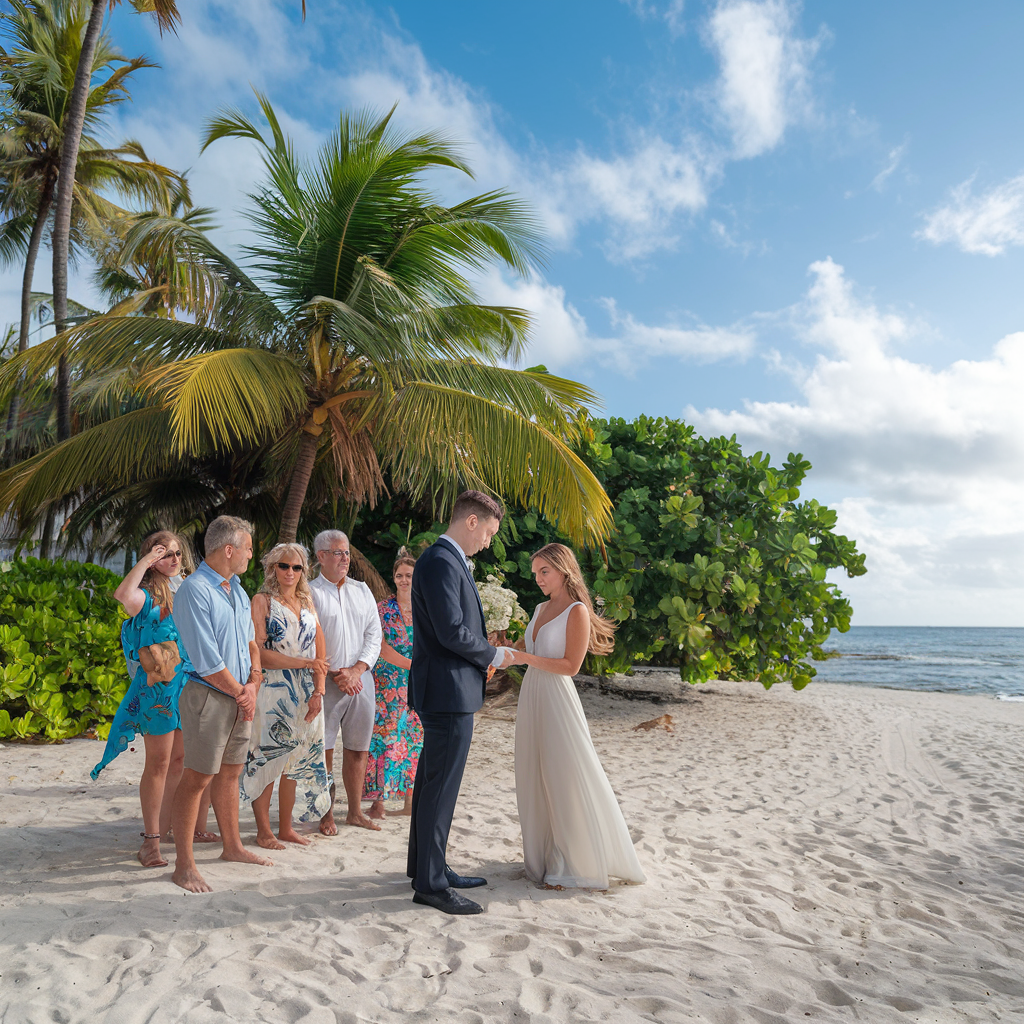
Destination weddings blend travel with tradition. Most couples can choose between a beach, mountain, or historic town. These weddings typically go on for longer than a day – think three to five days of fun with your nearest and dearest.
One big plus? Smaller guest lists. This means more quality time with everyone.
You’ll also get a built-in honeymoon. Many couples stay at their wedding spot after guests leave. Easy and budget-friendly.
Location and Venue Selection
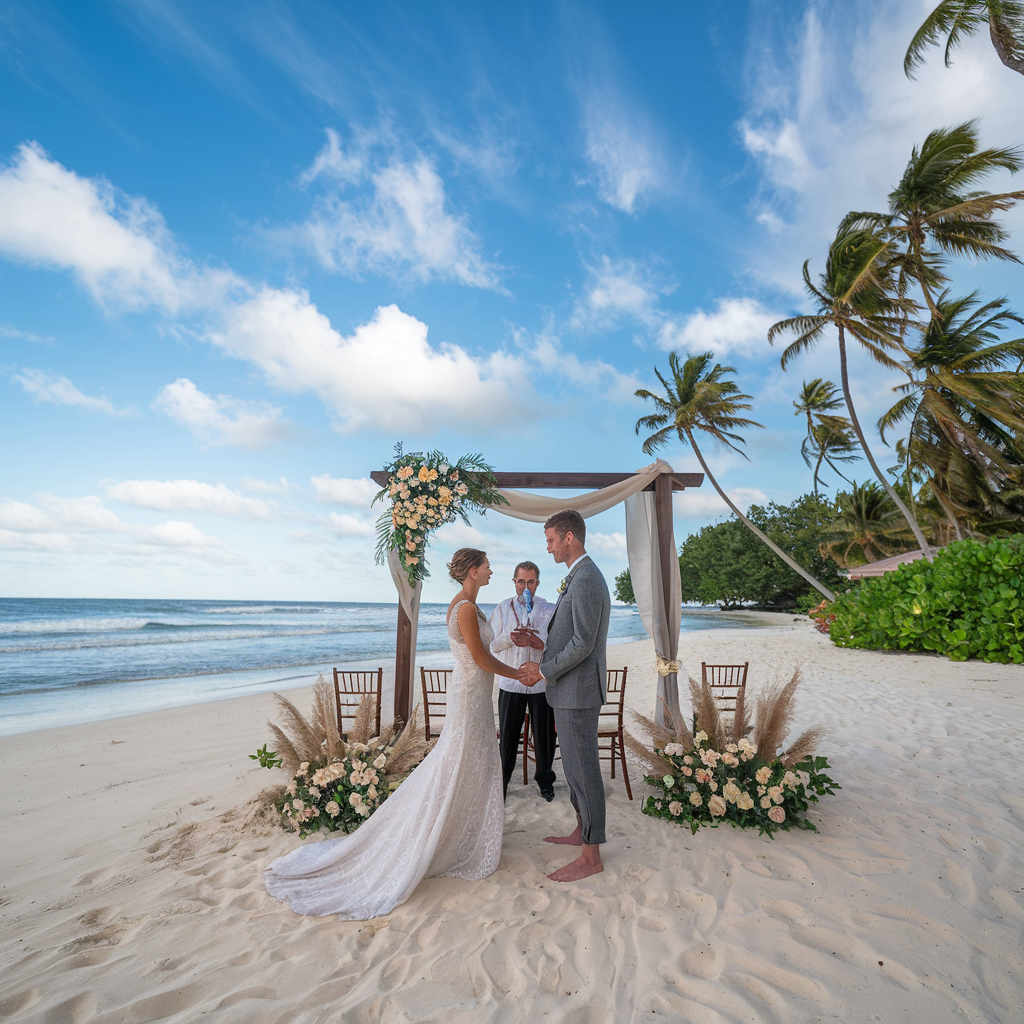
The choice of location is of utmost importance for a destination wedding.
Start by thinking about what you both love. Are you a beach person? Mountain fans? City lovers? Your wedding should match who you are.
Weather needs serious thought too. Look at typical weather patterns for your wedding date.
Budget drives many choices. Some places cost way more than others. Costlier places would be Italy and France while Mexico and the Dominican Republic are cheaper. All-inclusive resorts are usually a good value for the money because they package so much.
Don’t forget access. How easy is it for guests to get there? Are there direct flights? Will they need passports? The easier the journey means the more people can come. A location that takes 30 minutes to reach from the airport is better than one that takes 4 hours of driving after landing.
Cultural and Legal Considerations
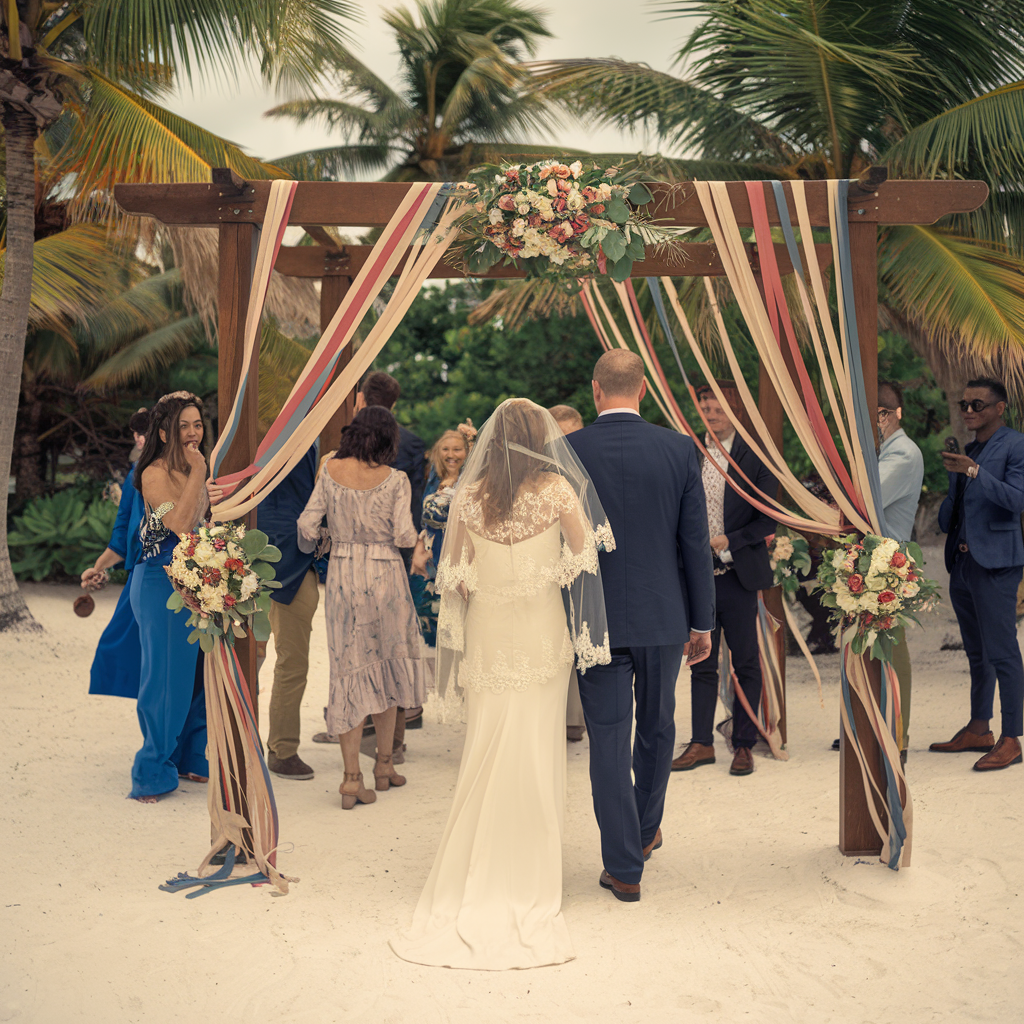
Getting married in another country brings extra steps as each place has its own rules. Many countries require couples to arrive days in advance of their wedding while some want blood tests or birth certificates with special stamps.
France’s tradition requires one of the people to be there for 40 days before the wedding. That’s why many American couples have been getting married in France but have legal ceremonies at home first.
Language barriers can trip you up too. Countries with low English proficiency might need to bring a translator. This helps with both planning and the ceremony itself.
Cultural sensitivity matters a lot. Marrying in a religious country means you might have to choose a more conservative outfit.
Local wedding planners understand these rules of the wedding country. Attires may also need to be more conservative if marrying in a religious country. That is why many couples hire local wedding planners who are well-versed with all these rules.
Guest Experience and Travel Logistics
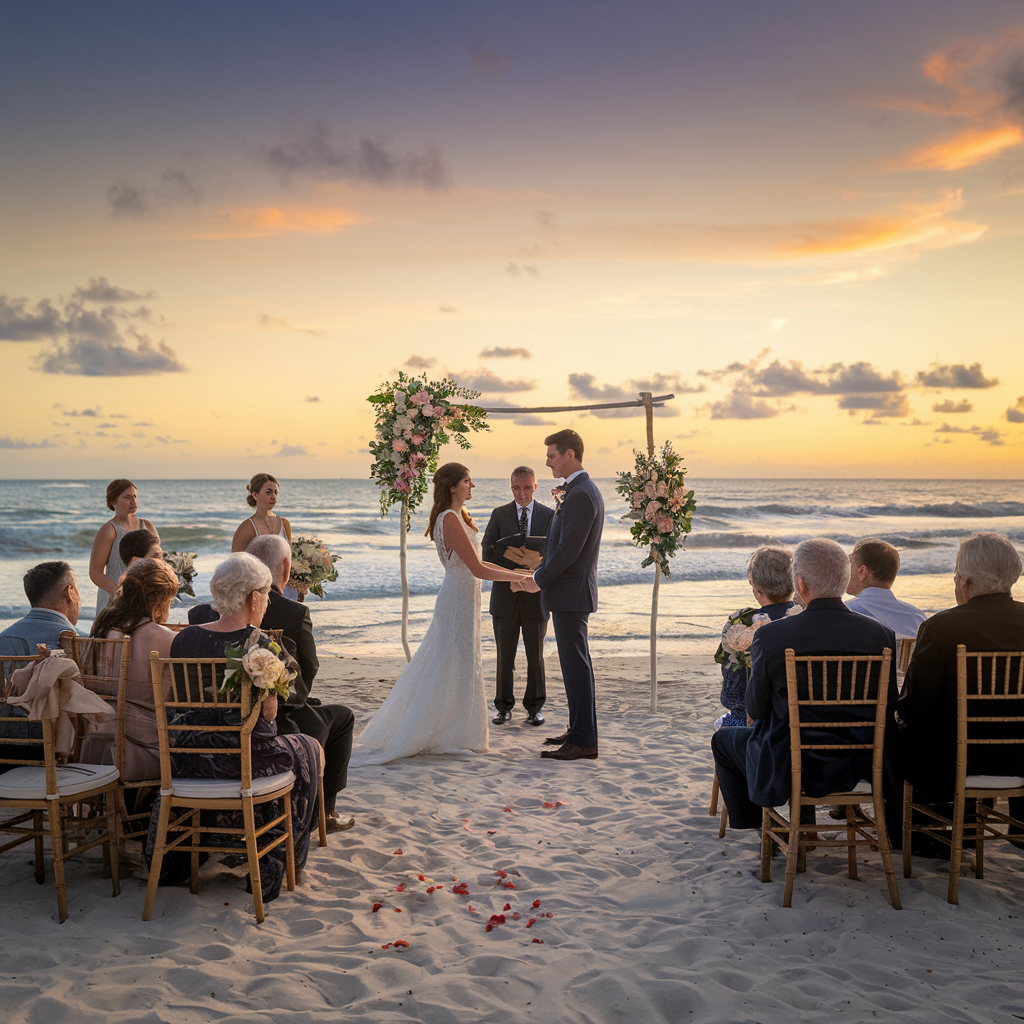
Your wedding will cost your guests time and money. So make it worth their trip.
Make a wedding website with all the info they will need: flight info, hotel options, local transportation, and fun stuff to do. Include a FAQ section for common questions.
Try to negotiate hotel room blocks at different price points. Not everyone has the same budget. Guests will thank you for thinking of their wallets and finances.
Organize activities that will help people meet before the wedding. Welcome dinners, boat trips, or group tours break the ice. But do not over-schedule that guests as need free time to explore or relax.
Remember time zones when planning. If guests are arriving the night before with jet lag then don’t schedule a breakfast. Schedule the wedding ceremony and the reception at good times that are comfortable for most people.
Weather backup plans are a must. Have an alternative location ready in case of rain for your beach ceremony. Always have a Plan B ready to go.
Planning a Destination Wedding

Planning a destination wedding takes a lot more time than planning a local wedding. You need about 12-16 months to plan everything right. Starting early is your best friend here.
First things first – pick a place you both love. Beach? Mountains? A cute little town?
Check the weather – You don’t want rain on your big day.
Consult the planner who knows that venue well; they’ll save you headaches.
Timeline and Milestones
Here’s a simple plan for timelines and milestones:
- 12 to 16 months before: Choose your venue and date. Send save-the-dates so people can plan. Book the big stuff like venue and planner
- 8 to 10 months before your wedding: Book your venue, set your date, and make your guest list. Book rooms for guests. Start looking at flights.
- 4-6 months before: Send invites. Plan welcome bags. Get your dress fitted.
- A couple of months earlier: Stay in contact with guests who haven’t replied. Make a list of what to pack.
- A month before the event: Verify all reservations. Pack early. Get your documents ready.
Budgeting and Cost Factors
Money talk isn’t fun but it’s the key. Destination weddings can cost less or more than weddings at home – it all depends on you.
The good news? You’ll have fewer guests.
Most couples find that 60% of guests they invite will mostly turn up for the celebrations at a destination wedding (Destination Weddings Travel Group, 2022).
Here are some big costs to think about:
- Traveling expenses and living arrangements
- Venue fees
- Supplier Cost
- Parties and activities
- 10% surprise costs or tip
Working with Local Vendors and Coordinators
Not being there means you have to rely on good people to help out. A local wedding planner is worth every penny – they know the best folks to hire and speak the language.
When picking vendors – ask for video calls not just emails. See their work online. Ask for reviews from other couples. Trust your gut feeling.
Be clear about what you want from the wedding vendor and receive in writing.
Having a venue coordinator along with an at-home planner was what worked best for me. One knows the place and the other knows you.
Things may not work exactly the way they do at home. Be open to local customs and ways of doing things.
Benefits and Challenges
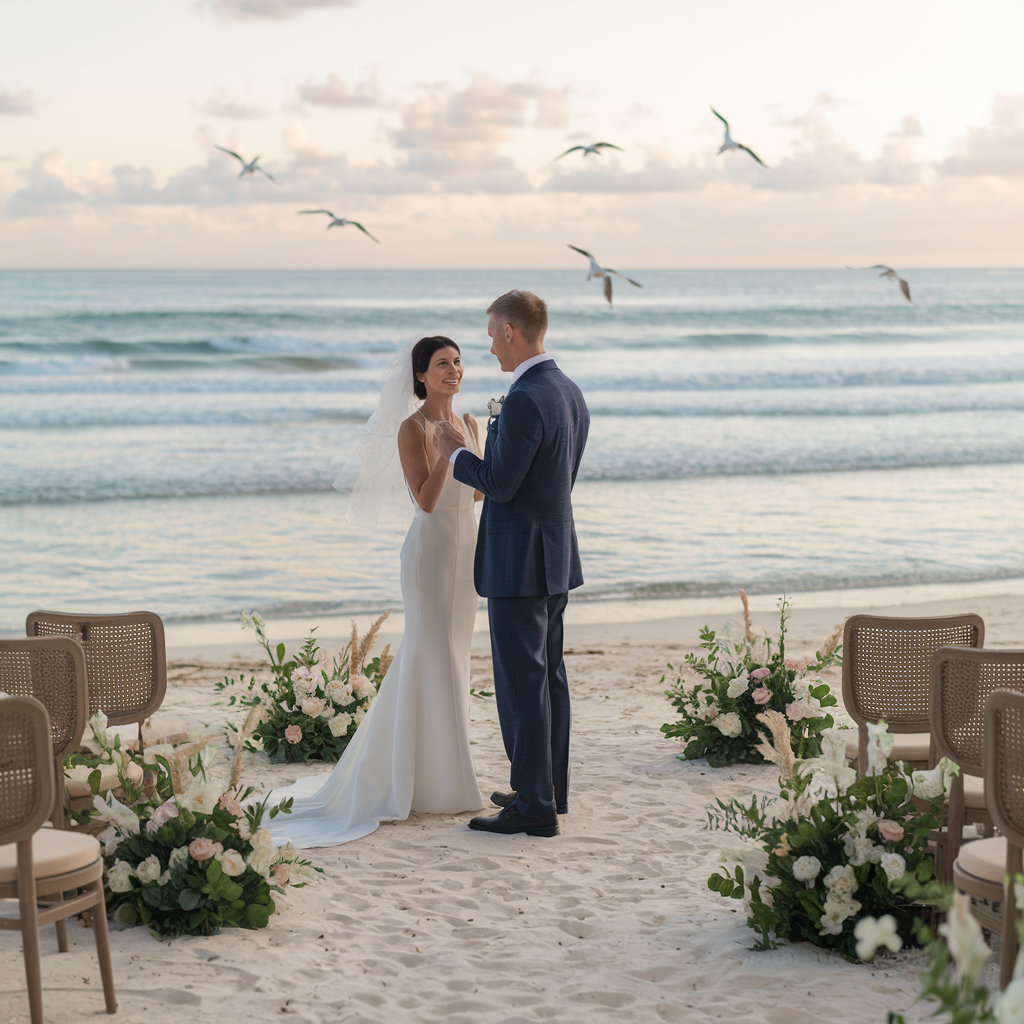
Destination weddings are interesting events that can be fun yet challenging at the same time.
Advantages of Destination Weddings
Cost savings often top the list of benefits. Even though it may not sound like it – a destination wedding is cheaper. Destination weddings cause guest lists to shrink on their own—only the people who care will be there.
Make for great memories. Your family and friends not only attend a ceremony but also get a vacation. Everyone stays together for days. This creates deeper bonds and more meaningful connections.
Another big plus? Built-in honeymoons. No need to pack again or take another flight. Just switch rooms and start your honeymoon right away.
Common Challenges and Solutions
Planning from afar can feel overwhelming. It’s not easy to just stop by your venue or meet your vendors. The solution? Hire a local wedding planner who knows the area well. They become your eyes and ears on the ground.
Guest attendance will drop. Accept this fact early as some friends and family will not be able to come due to cost, taking off work, and travel fears. Solution? Send live-stream links to loved ones who can’t attend. Many resorts now offer this service as standard.
Legal requirements vary by country. Some locations require blood tests or minimum stay periods before they can marry you legally. Look into it early or maybe try the legal part back home and the abroad. This two-step approach solves headaches.
It doesn’t matter where you will get married; there will always be weather issues. Always have a backup plan for outdoor ceremonies and talk to venue contacts about their rain plans before booking.
Frequently Asked Questions (FAQ)
How do wedding color palettes differ for destination weddings?
Destination weddings often embrace color palettes inspired by the location like turquoise and coral for beach weddings or mauve and green for mountain venues. Wedding colors for destinations typically complement the environment rather than compete with it.
What information should destination wedding invitations include?
Destination wedding invitations should include travel information, RSVP deadlines (typically requested 3-4 months in advance), and accommodation details beyond standard wedding invitation etiquette. Other inclusions are venue recommendations, local transportation options, and a QR code linking to the wedding website with everything guests need to know. Clear communication is key for destination weddings where guests need more planning time.
What's the difference between destination weddings and city weddings?
The main difference is that destination weddings typically require guests to travel and stay overnight to create a multi-day celebration rather than a single-day event. City weddings usually have higher attendance rates since local family and friends can easily attend without major travel preparations. Destination weddings often incorporate local cultural elements and activities for guests while city weddings typically follow more traditional schedules.

I am an award-winning author who has deep insights into the world of dating & relationships. I have won several awards including Andromeda Magazine – Fantasy Short Fiction Story award amongst several other awards and writing achievements.